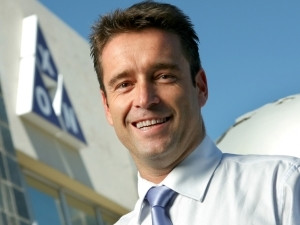
XON, the ICT solutions business, recently hosted its second annual Summit at Sun City, and attendance of select delegates increased by 50%, to nearly 350, this year.
The Summit hosted guest speakers from platinum sponsors Juniper Networks, Schneider Electric, ADVA Optical Networks, F5 Networks and XON, covering a range of topics, including the latest trends and advances in telecommunications, optical technologies, data centres, virtualisation and unified communications.
Attendees came from numerous African telecommunications and networking services providers, various large private sector customers, as well as numerous government departments for this year's theme: I(Innovation)=X(ON)2 - The Elements of Innovation.
"This year we focused on future-proofing businesses, helping customers gain a competitive edge, and using technology to improve efficiencies and deliver a better experience for end-users," says Carel Coetzee, CEO of XON. "Change is sweeping through the telecommunications services industry, and service providers have to bring innovative new services and creative, value-added offerings to the market to ensure returns on their investments while simultaneously boosting service delivery."
Changes in the telecommunications industry that were discussed by guest speakers such as Mark Baptiste, GM of Juniper Networks in South Africa, include the growing bandwidth demands from Internet applications such as video, machine-to-machine communications, cloud computing, the spectrum challenges around deploying LTE and the impact it will have on services and revenues, broadband aggregation and software-defined networking (SDN).
Issues that are impacting telecommunications service providers today, which will be compounded in the future, were discussed by Gary Newe, senior systems engineering manager for the UK, Ireland and Africa at F5 Networks, which included load balancing, latency, intelligent service frameworks, denial-of-service (DoS), collapsing layers of infrastructure to reduce costs and speed up delivery, and security in an increasingly connected world.
Christoph Glingener, CTO of ADVA Optical Networks, delved into access and backhaul. He said access speeds of up to 500Mbps are becoming plausible, yet they are going to have a big impact on backhaul infrastructure. Fibre, he said, is becoming the gold of the telecommunications industry since it is reaching maximum physical throughput capacity. Workarounds are currently being deployed, such as multi-band, multi-core and even few mode fibre, but by 2020, the current deployed fibre networks will be at maximum capacity. Glingener bored into the trends moulding the fibre industry and discussed the future landscape of next-generation, fibre-based networks.
Powering the demand for increased capacity from data centres and telecommunications service providers will fuel requisite demand for more energy, yet the world, and specifically Africa, face an energy dilemma, said Bruce Grobler, VP for southern Africa - IT Business at Schneider Electric. By 2015, the world will need 47% more energy than it produces today, yet we also need to reduce CO2 emissions. The majority of the demand for additional energy will stem from new economies, which means countries such as South Africa, Brazil and Russia, yet 20% of the delivery sits in China. Energy prices for coal and oil are also rising, which will have a further impact, and energy delivery is not historically ramped up very quickly - in South Africa, the forecast is 10 years to have a new power plant up and running. What we need to do, he said, is optimise energy usage so that our infrastructure becomes as efficient as possible.
There were also gold sponsors that displayed their innovative solutions at the Summit and included Oracle's recently acquired Acme Packet, Procera, Symantec and Volubill. Silver sponsors included Metaswitch Networks, Blue Coat and RT Systems.
Share
Editorial contacts